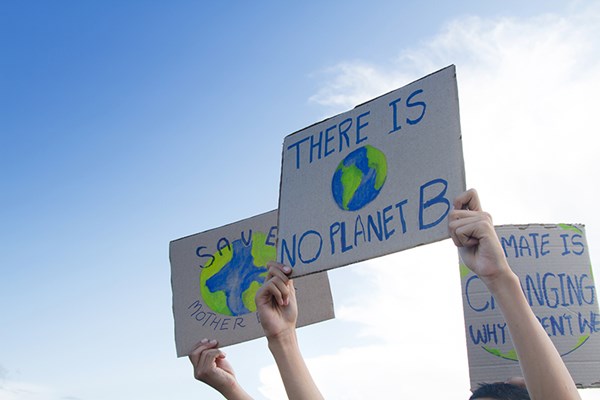The oft-quoted mantra in emergency medicine is "anyone, anytime, anywhere." We are the front line and safety net of our health care system.
We are trained to respond in any emergency, whether big or small. There is increasing recognition in the house of medicine that climate change is not just an issue for scientists and politicians, but for our patients.
A Public Health Emergency
According to a recent New England Journal of Medicine article,1 climate change is a health emergency with numerous effects on human wellbeing. There are direct health impacts such as traumatic injuries from increasingly severe natural disasters, and indirect impacts as well, including food insecurity from drought, increasing spread of insect-borne diseases, and exacerbations of chronic lung disease from air pollution.
It is largely the direct impacts of climate change that will be increasingly felt by the EM community, but indirect impacts are affecting our most vulnerable our patients as well: whether the elderly woman with no access to air conditioning who presents with heat stroke on an abnormally hot summer day, or homeless patients seeking shelter from a severe winter storm, or the chronic asthmatic who presents in extremis on a day when air quality levels are exceptionally low.
In the 2018 article “Climate Change and Health: An Urgent Call to Academic Emergency Medicine” published in the Journal for Academic Emergency Medicine,2 Renee Salas, MD, argues that the public health harms of climate change:
“...disproportionately affect children and elders, the poor, and those with chronic diseases—the patients we see in our EDs. Globally, those most affected are the least responsible. Thus, there are practical and ethical imperatives for academic emergency physicians to become climate and health champions.”
Systems Impacts
Climate change threatens our patients’ health, but it also threatens our ability to provide care. For example, the neighborhood where Boston Medical Center is located is particularly at risk for one climate impact: storm water flooding. It is predicted3 that by the 2030s, 11% of the neighborhood will be flooded during storms, and with just 40 additional years, the number goes up to 26%. Our emergency and radiology departments are located on the ground level of our hospital, so such flooding could devastate our ability to provide basic emergency care. The impact4 of Superstorm Sandy on New York City hospitals also serves as a warning for vulnerable coastal hospitals. Power generators located in hospital basements failed, leaving elevators inoperable for evacuating patients. NYU Langone ended up spending $1.5 billion on repairs and fortification for future storms. Perhaps we should also consider the preemptive installation of flood barriers and other protections that would allow hospitals to remain functional in the event of severe storm water flooding. Flooding, wildfires, and power blackouts from severe storms are just some examples of the potential impact of climate change on health care delivery.
A Call to Action
It’s time to embrace the power physicians have to make a difference — if not in mitigating climate change, then in mitigating the impact on our patients, especially those with the fewest resources to protect them.
There is plenty of room for action. First, medical schools should include climate and health in their curricula to educate future physicians on this important social determinant of health. In review of the AAMC’s Curriculum Inventory there are no listed curricula explicitly addressing climate change and human health. The current presence or variety of climate and health, or “environmental health” related content in medical school curricula is unknown.
Similarly, there is a need for increased research on the topic, including ways that natural disasters will impact the delivery of care in our EDs and hospitals, specific climate-related health effects on our various patient populations and, for example, whether these effects impact the increasing numbers of ED visits around the country.
Finally, physicians are well-suited as advocates for action on climate change. We hold a unique and trusted position in the public sphere, and have an obligation to use our voices to amplify the discussion around this public health crisis. The Medical Society Consortium on Climate & Health is one great resource for physicians looking to get involved. Physicians for Social Responsibility (PSR) also work as advocates for environment and health issues.
Climate change is arguably the health care emergency of our time. Let’s get to work.
References
- Solomon CG, LaRocque RC. Climate Change — A Health Emergency. N Engl J Med. 2019;380(3):209-211.
- Salas RN, Slutzman JE, Sorensen C, Lemery J, Hess JJ. Climate Change and Health: An Urgent Call to Academic Emergency Medicine. Acad Emerg Med. 0(0).
- Climate Vulnerability Assessment. Climate Ready Boston. 2017. https://www.boston.gov/sites/default/files/imce-uploads/2017-01/crb_-_focus_area_va.pdf
- Arndt RZ. Five years after Superstorm Sandy, NYC hospitals may be as ready as Houston’s were for Harvey. Modern Healthcare. 2017.



